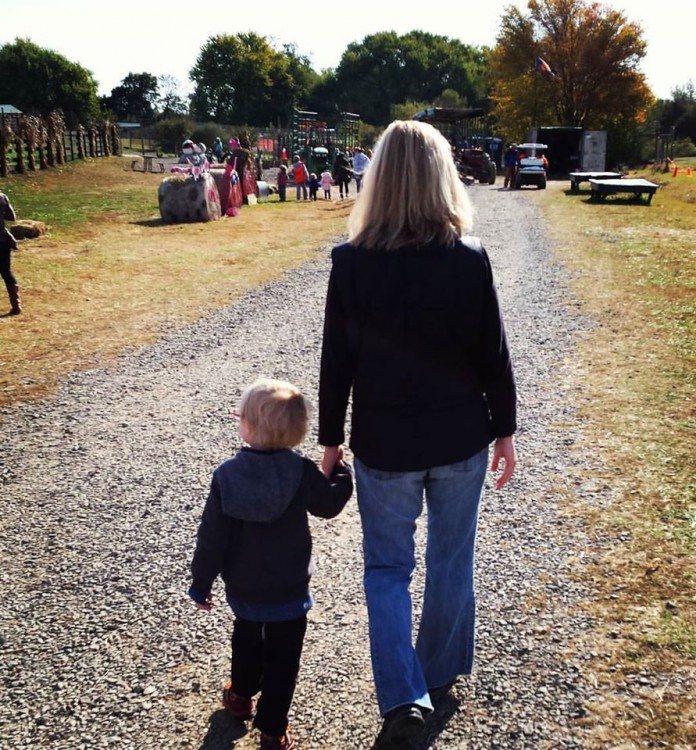About 20 years ago, after a lifetime of eating shellfish, I went into anaphylactic shock and almost died. My entire face was swollen, I was dizzy and my whole body felt very tingly and itchy. My tongue was swelling up to the point of being unable to breathe.

Thankfully, I was minutes away from St. Vincent’s Hospital in Staten Island. The ER staff gave me many doses of epinephrine and saved my life.
I felt pretty bad for a few weeks after this incident, but eventually my body recovered, and life went on. It was easy to avoid seafood restaurants, so I have, and to this day I have not been back to one.
I followed up with my doctor once after this incident and was given a prescription for EpiPens. I refilled my prescriptions occasionally but didn’t always carry the auto-injectors with me.
Just like many people, I did not take it seriously enough. I got over this scary event, then barely ever thought about it.
Until something similar happened to my 4-year-old son.
The son who is my world, the son who I love more than myself. The son who I would do anything to protect.
This time it was real.
This time it really woke me up and hit home. This time it affected someone other than myself — one of the people I love most. My second child, who came after many miscarriages. The second child who made my heart grow even bigger than I ever knew possible. I had to get my daughter tested also, and educate myself more about EpiPens and food allergies to learn to protect my children.
I did not know then what I know now:
- I did not know that I should carry this life-saving medication with me at all times. You never know when you may come in contact with a life-threatening allergen. Even a trip to the dentist can lead to the ER due to nut ingredients in fluoride varnishes.
- I did not know that vomiting was a sign of a food allergy.
- I did not know about the dangers of cross-contamination, and how it can lead to death in some cases. I did not know that food manufacturers are not required to label for any possible cross-contact or shared lines.
- I did not know that high or low temperatures could damage or destroy an EpiPen. It is recommended to store it as close to room temperature (77 degrees) as possible. If you leave it in extreme heat or cold, it could be damaged, and it is recommended that it be replaced.
- I did not know that it is necessary to carry more than one auto-injector, especially if you do not live close to a hospital, and the ambulance response time is long. About 20 percent of people will need more than one dose of epinephrine.
- I did not know that EpiPens may have to be administered if you only take a bite of your anaphylaxis-producing allergen. Even if you spit out the offending food, it is still considered ingested and could cause anaphylaxis.
- I did not know that I needed a food allergy and anaphylaxis emergency action plan.
- I did not know that EpiPens should be given within minutes of known ingestion (per an action plan), or with serious symptoms such as inability to breathe, or turning blue, or with two or more of the symptoms from two different body systems. An ambulance should be called after giving an EpiPen.
- I did not know that you are supposed to stay at the hospital for a minimum of four hours, to be monitored and to make sure a biphasic reaction does not occur.
- I did not know that a person or child should be held down while giving an auto-injector, so that a large gash won’t occur on the leg in which it is administered.
What I know now is that I don’t know much, and I have a lot more to learn about EpiPens and anaphylaxis. I know that I will keep educating myself in order to keep my family safe. I try to learn something new every day. I take it one step at a time, so I do not feel too overwhelmed.
Do not wait until it’s too late; learn all about the dangers of food allergies.
One in 13 children have them. It’s a growing epidemic.
We must all take them seriously. We must all act to protect our families, friends and neighbors and try to make a difference.
I am no longer complacent. I take life-threatening food allergies very seriously now. I have them. My husband has them. And now my son has them.
I’ve finally realized how important this is. I’ve finally realized what I have to lose. The loves of my life…
The Mighty is asking the following: What’s one thing you thought on the day of your or a loved one’s diagnosis that you later completely changed your mind about? If you’d like to participate, please send a blog post to community@themighty.com. Please include a photo for the piece, a photo of yourself and 1-2 sentence bio. Check out our Submit a Story page for more about our submission guidelines.
